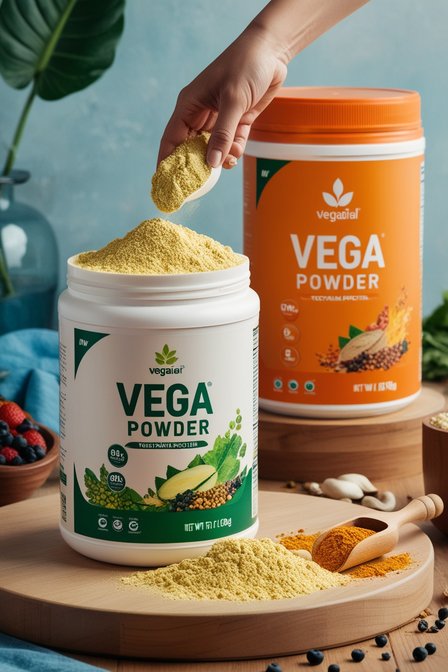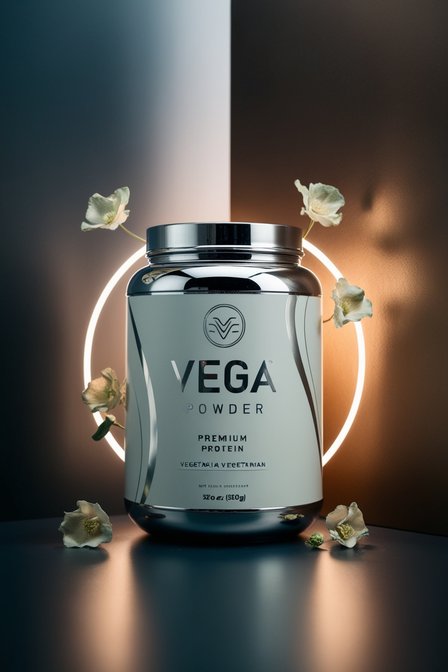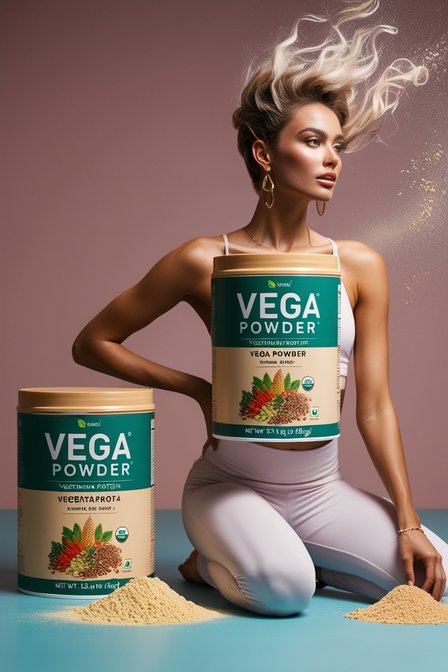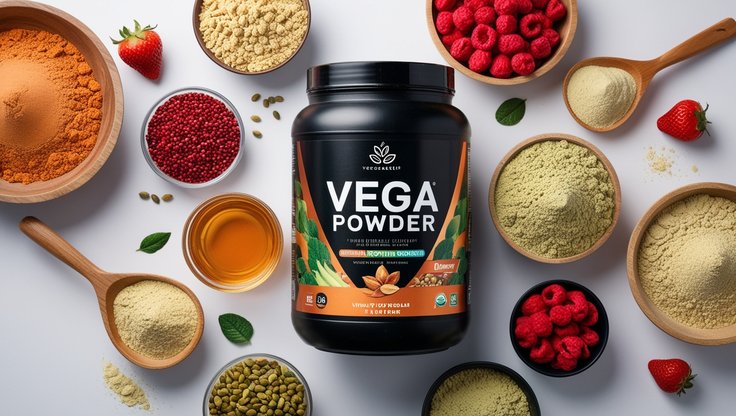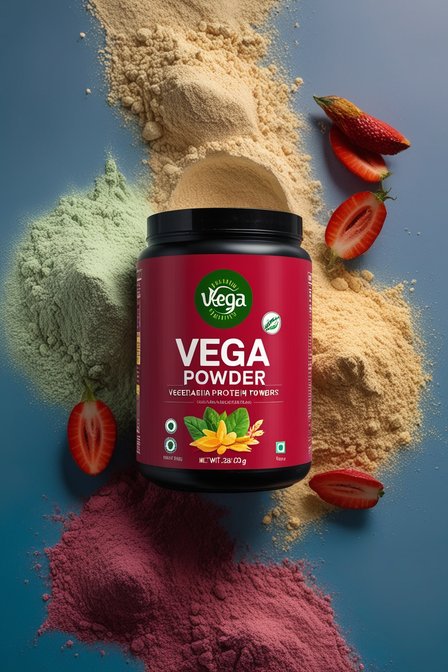Vegan Protein Powder: The Ultimate Guide
Introduction to Vegan Protein Powder
In recent years, the shift towards plant-based diets has seen an explosion in the popularity of vegan protein powders. These supplements have become an essential part of the diet for vegans, vegetarians, and even omnivores looking to diversify their protein sources. Vegan protein powders are derived from plant sources such as peas, rice, hemp, soy, and other legumes and grains. They offer a clean, cruelty-free alternative to animal-based proteins like whey and casein, while providing similar, if not superior, nutritional benefits.
The Benefits of Vegan Protein Powder
Vegan protein powders are rich in essential nutrients that support overall health and wellness. They contain a variety of amino acids, vitamins, and minerals necessary for muscle repair, growth, and immune function. Additionally, they are typically lower in saturated fat and free of cholesterol, making them heart-healthy choices. These powders are also easier to digest for many people, as they do not contain lactose, which can cause digestive issues in those who are lactose intolerant.
Another significant benefit of vegan protein powder is its sustainability. Plant-based proteins require fewer resources to produce and have a smaller environmental footprint compared to animal-based proteins. This makes them an excellent choice for those looking to reduce their impact on the planet.
Different Types of Vegan Protein Powder
There are several types of vegan protein powders available, each with its unique benefits and characteristics.
Pea protein is one of the most popular choices. It is highly digestible and contains all nine essential amino acids, making it a complete protein. Pea protein is also rich in branched-chain amino acids (BCAAs), which are crucial for muscle building and recovery.
Rice protein is another common option. Although it is not a complete protein on its own, when combined with other plant proteins, such as pea protein, it provides a well-rounded amino acid profile. Rice protein is hypoallergenic, making it suitable for individuals with food sensitivities.
Hemp protein is praised for its omega-3 and omega-6 fatty acids, which support heart health and reduce inflammation. It also contains fiber, aiding in digestion and promoting a feeling of fullness.
Soy protein is a complete protein with a long history of use in plant-based diets. It is rich in essential amino acids and has been shown to support muscle growth effectively. However, some people may avoid soy due to concerns about allergies or genetically modified organisms (GMOs).
How to Choose the Right Vegan Protein Powder
Selecting the right vegan protein powder depends on individual dietary needs, health goals, and personal preferences. When choosing a protein powder, it is essential to consider the following factors:
Protein Content: Look for a powder with a high protein content per serving to ensure you are meeting your daily protein requirements. Most vegan protein powders provide around 15-25 grams of protein per scoop.
Amino Acid Profile: Ensure the protein powder contains all nine essential amino acids, or combine different plant-based proteins to achieve a complete profile.
Ingredients: Check the ingredient list for any additives, fillers, or artificial sweeteners. Opt for products with minimal, natural ingredients.
Digestibility: Some protein powders may cause digestive discomfort. If you have a sensitive stomach, consider powders known for their easy digestibility, such as pea or rice protein.
Flavor and Texture: The taste and texture of protein powder can vary significantly. Experiment with different brands and flavors to find one that you enjoy and can easily incorporate into your diet.
Incorporating Vegan Protein Powder into Your Diet
There are numerous ways to include vegan protein powder in your daily routine. The most common method is blending it into smoothies. This allows you to create nutrient-dense beverages by combining the powder with fruits, vegetables, nut butters, and plant-based milk. Smoothies are a convenient option for a quick breakfast or post-workout recovery drink.
Vegan protein powder can also be added to oatmeal, yogurt, and baked goods to boost their protein content. For those who prefer savory options, unflavored protein powders can be mixed into soups, stews, and sauces. The versatility of vegan protein powder makes it easy to enhance the nutritional value of various meals and snacks.
Vegan Protein Powder for Athletes
Athletes and fitness enthusiasts can benefit greatly from incorporating vegan protein powder into their diets. Protein is essential for muscle repair and growth, especially after intense training sessions. Vegan protein powders provide a high-quality, plant-based source of protein that supports athletic performance and recovery.
The presence of BCAAs in many vegan protein powders is particularly beneficial for athletes. BCAAs help reduce muscle soreness, promote muscle protein synthesis, and improve endurance. Additionally, the anti-inflammatory properties of plant-based proteins can aid in faster recovery and reduce the risk of injuries.
Potential Downsides and Considerations
While vegan protein powders offer numerous benefits, there are some considerations to keep in mind. One potential downside is the presence of anti-nutrients in some plant proteins, such as phytic acid and lectins, which can inhibit the absorption of certain minerals. However, most high-quality vegan protein powders undergo processing methods that reduce these compounds to safe levels.
Another consideration is the need for a varied diet to ensure a complete amino acid profile. While some vegan protein powders are complete proteins, others may require combination with different sources to meet all essential amino acid needs. A well-planned plant-based diet can easily overcome this challenge.
The Future of Vegan Protein Powder
The demand for vegan protein powders is expected to continue growing as more people adopt plant-based diets for health, ethical, and environmental reasons. Innovations in food technology are likely to lead to the development of new and improved plant-based protein sources. These advancements will make vegan protein powders even more accessible and appealing to a broader audience.
Companies are also exploring sustainable packaging options to reduce the environmental impact of their products. As consumers become more environmentally conscious, the industry will need to adapt to meet these expectations.
Conclusion
Vegan protein powder is a versatile and nutritious supplement that offers numerous benefits for health, fitness, and the environment. Whether you are an athlete looking to enhance performance, a vegan seeking to meet your protein needs, or someone simply interested in incorporating more plant-based foods into your diet, vegan protein powder can be a valuable addition to your nutritional regimen. By choosing the right type of protein powder and incorporating it into your meals and snacks, you can enjoy the many advantages of this plant-based powerhouse.
